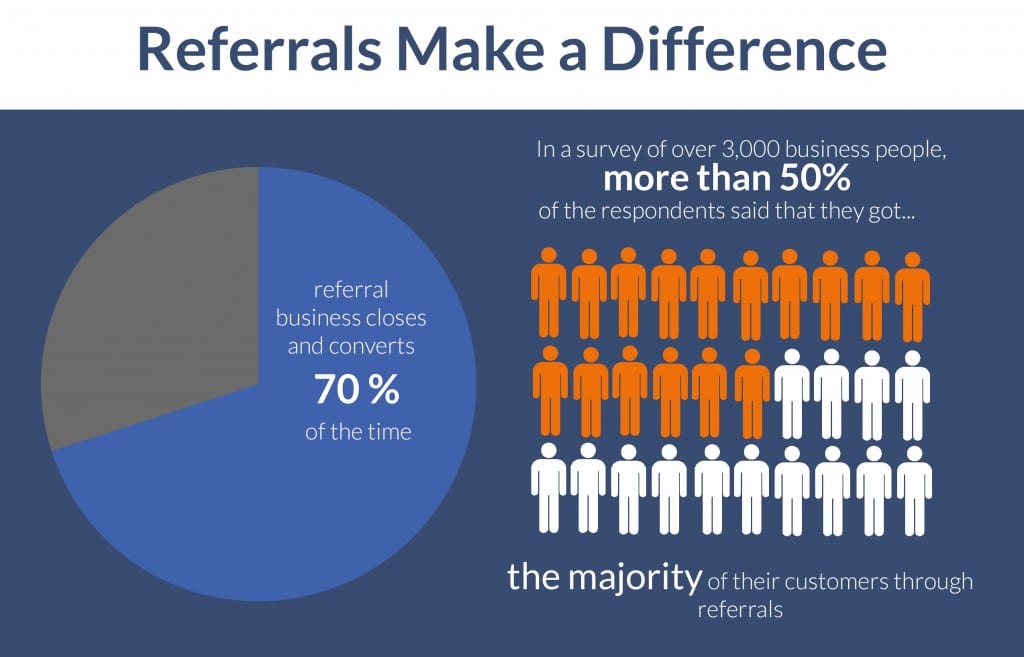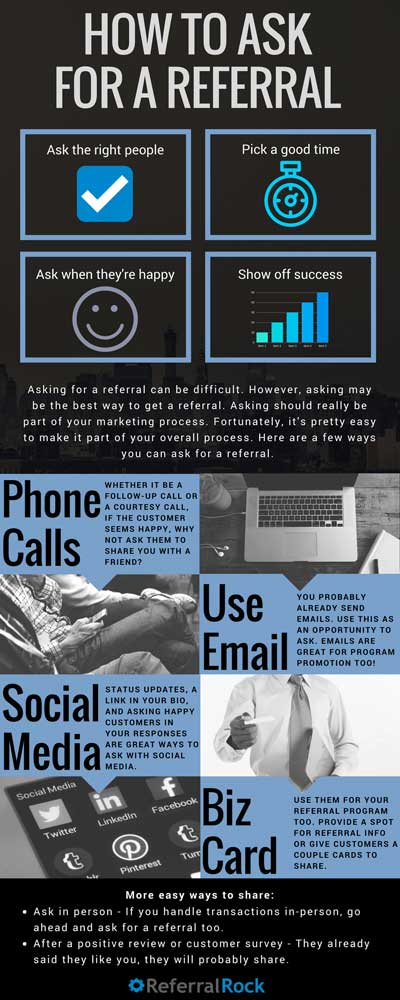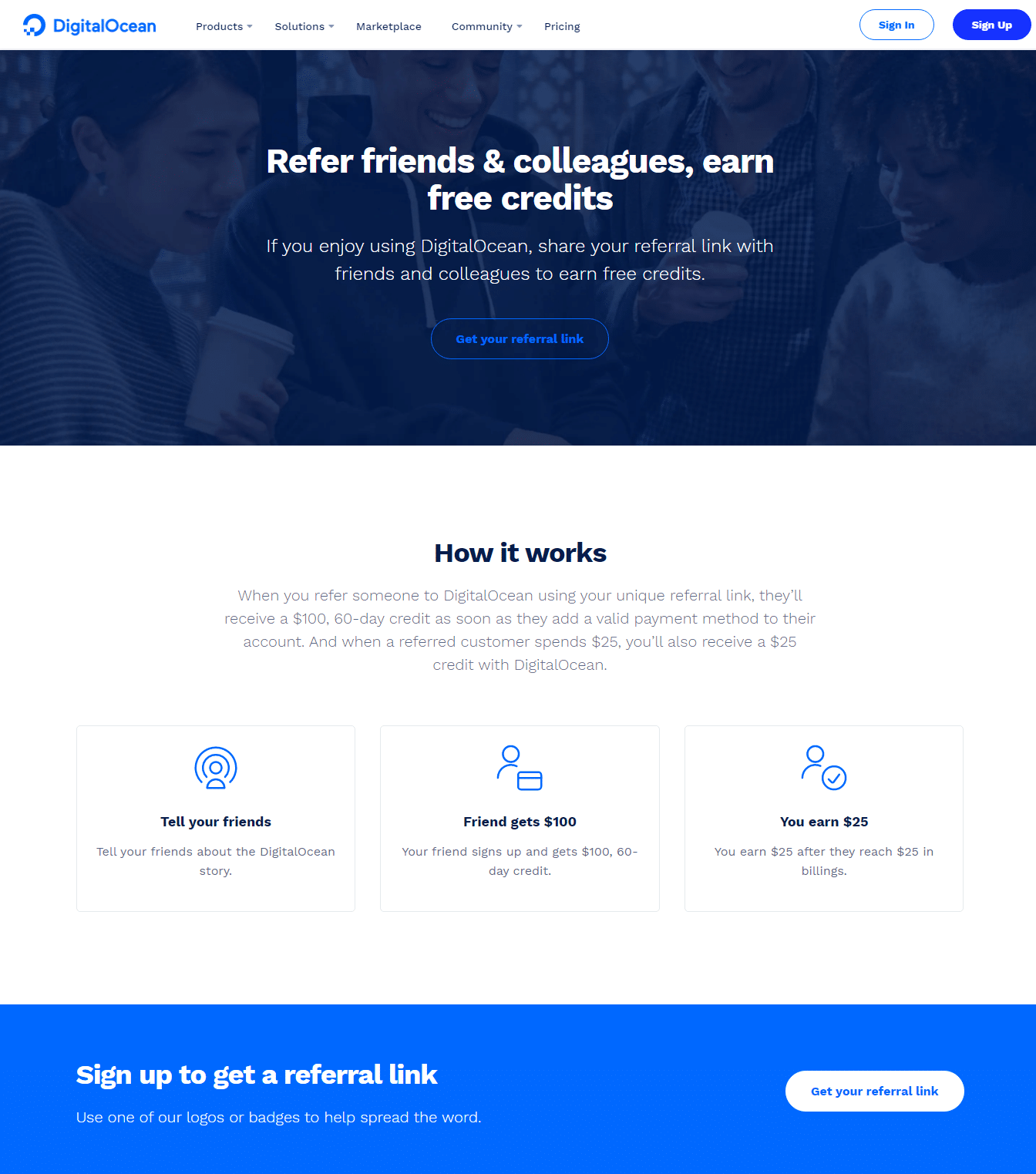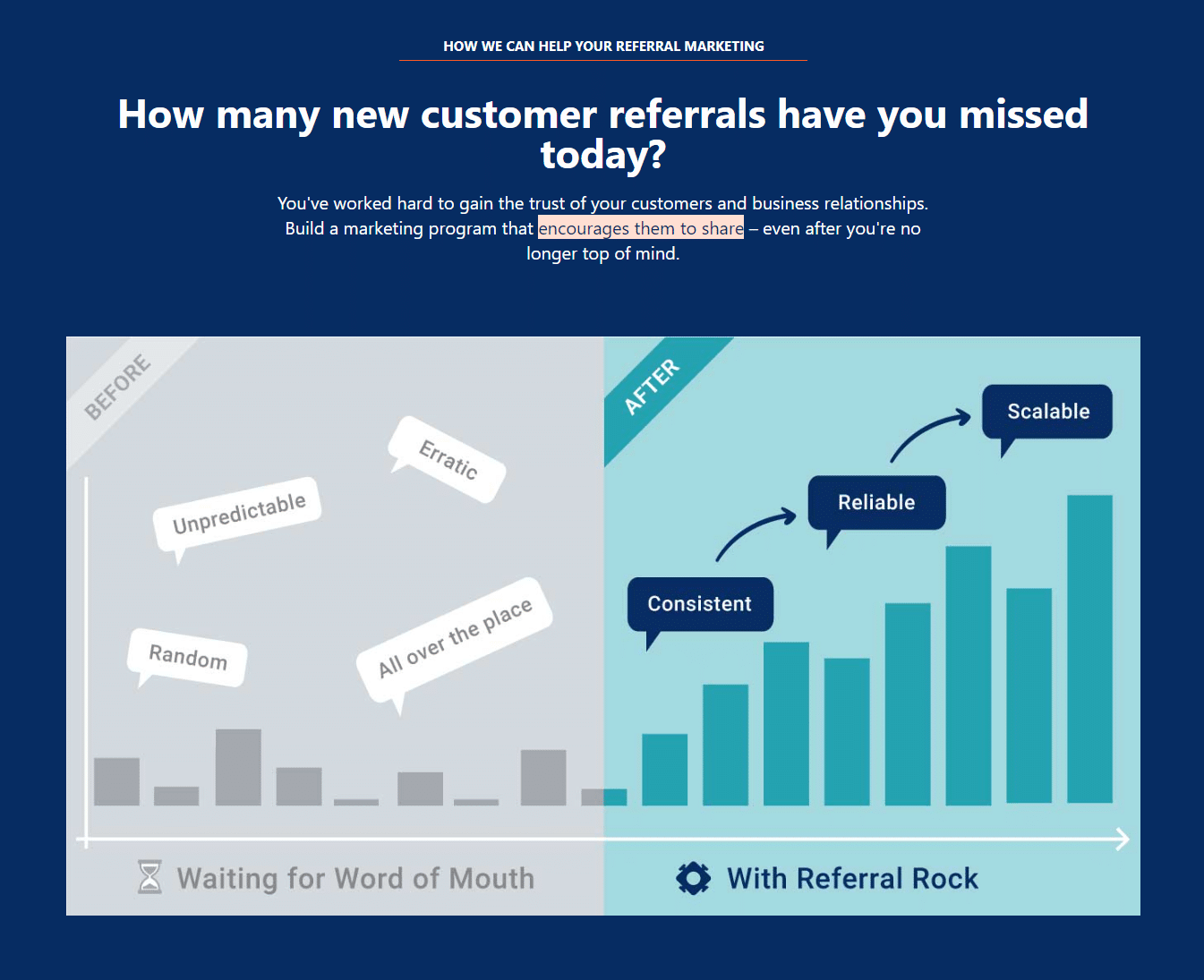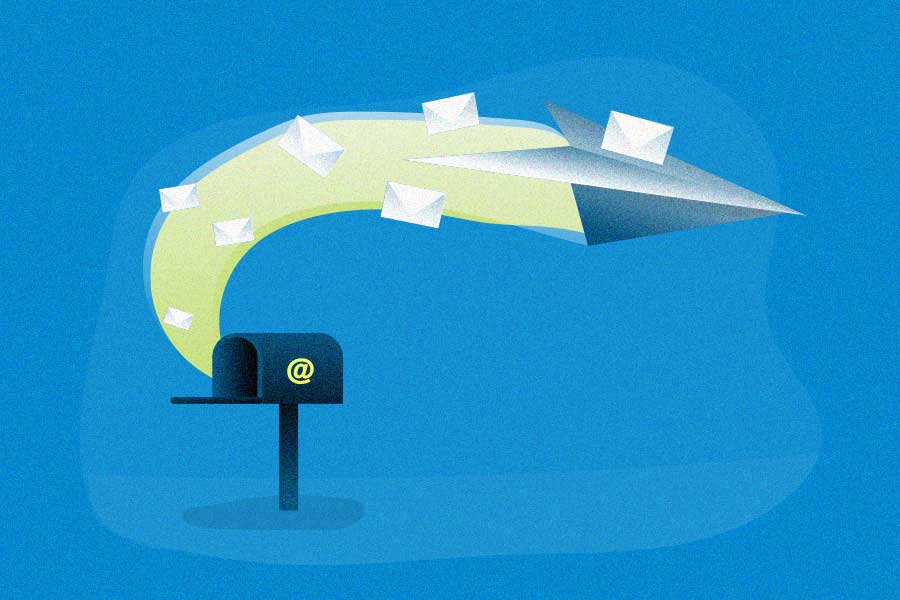Every B2B sales team understands the importance of having a consistent stream of leads to build on their productivity. Recognizing the significance of creating a solid referral sales strategy, we explore how it contributes to fostering an efficient team and multiplying your potential for conversions. Referral programs directly tap into the human tendency to trust first-hand experience. They are employed not only as a marketing strategy but also as a tool for customer retention.
Here’s how your B2B, SaaS, or other business with multi-step processes can boost referral sales through an effective referral strategy.
What are referral sales?
Referral sales are about leveraging your existing customers to generate new leads for your sales team. When current customers give your sales team their peers’ contact information, this feeds the referral sales process. You can then mention the existing customer’s recommendation when you contact the new lead, and leverage the trust that the lead places in their peer during the sales conversation.
How do referral sales work?
In the competitive landscape of the B2B or SaaS industry, referral sales carry a substantial impact. The aim is to convert your satisfied customers into brand advocates, primarily because people trust the word-of-mouth recommendations of their peers. Also, since such recommendations are usually shared among acquaintances who have similar needs, referral sales promise high-quality, target-oriented leads.
This method to bolster your sales pipeline may seem straightforward, but it requires thorough understanding of your customers’ perceptions and preferences. It also requires a robust monitoring system to ensure that the initiative is paying dividends as it should.
The core principle of referral sales hinges on the trust between your business and its clients. The more a customer believes in your products and services, the more likely they are to refer potential clients to your salespeople. A successful referral program, thus, depends upon how efficiently you can create an impression on your clientele, prodding them to share positive experiences with their network.
Unlocking the benefits of referral sales
Using a referral sales strategy can bring countless benefits to your business. Let’s dive deeper into the significant advantages of a customer referral program:
- Referrals are more likely to bring in new customers, as people are more inclined to buy from you based on the recommendation of a trusted individual. About 92% of consumers trust referrals, making them more trusted than any advertising from your brand. Higher trust also means a higher probability of successfully upselling and cross-selling to the referred leads.
- Customer referral sales can significantly reduce your marketing expenditures, as you’ll only pay when customers successfully bring in leads and sales. Simple communication with your satisfied customers sets the stage for a steady increase in leads. A well-laid-out referral program can surely optimize your lead acquisition cost-effectively.
- Referred customers are likely to spend more and show higher loyalty toward your brand, particularly if someone they trust has referred them. These leads generally exhibit a lower churn rate and higher customer lifetime value.
- Referral programs offer an excellent way to reward your current customers, enhancing their overall experience and motivating them to facilitate more referrals.
- Referral sales can often help businesses reach new market segments, as referrers give you access to their audiences.
- A mature referral program can also contribute to a higher Net Promoter Score (NPS). Satisfied customers tend to share their positive experiences with others and showcase the brand in a positive light.
Decoding when and how to ask for sales referrals
Ascertaining the right moment and method to ask for sales referrals is crucial for a successful referral program. Let’s look at the best outreach strategies to follow:
Timing your asks
Timing is critical in asking for referrals. Done right, it can bolster your chances of securing valuable leads. Your sales team needs to know when to ask for referrals while interacting with customers. Ideally, you should have built a rapport and ensured their satisfaction with your product or service before probing for referrals. In most cases, happy customers are more willing to provide referrals over those who face any issues with your offerings. Also, if you establish regular checkpoints or interactions with customers, it can provide natural opportunities to bring up the referral program.
- Ask for referrals during positive customer interactions.
- Examples would be when you received positive feedback, a five-star customer survey response, or a positive review or social media comment.
- You should also ask for referrals during moments where you know the customer has received value from your product or service.
- Examples would be when your customer reached a milestone or accomplished a known goal.
Strategy of asking for referrals
While strategizing the ask, ensure that you do not come off as pushy or desperate. The technique lies in subtly nudging the customers for referrals, without making it seem like a demand. You can aid your sales professionals with an email template or call template, to ensure the request is conveyed politely. In case a customer is hesitant to provide a referral, let it go and move on to the next customer.
You might also want to consider leveraging emails for communication, given that studies suggest nearly 80% of prospects favour email communication over any other method. Moreover, regular newsletters highlighting achievements can also be strategically employed as subtle nudges to the customers to participate in the referral program.
We recommend using a script for referral asks made via call and email. This means defining set optimum times to make the ask, plus set wording you use to make the request. Be sure to thank a customer for their loyalty, explain the importance of referrals, and set up what’s in it for them.
You can see some sample referral templates for emails here.
And don’t be afraid to follow up if the customer didn’t give a referral the first time, especially if they said they needed time to think about who they might refer.
Best practices for managing referral sales
While focusing on refining the customer experience and building enduring relationships is key to boosting your referral sales, several other steps can further enhance the effectiveness of your referral process.
Incentivize referrals
Incentives can often be the best motivators in your referral program. To drive your existing customers to provide referrals, consider offering suitable rewards that will be valuable to them. Tailor these incentives according to the specific product/service they have purchased from you, and the frequency of purchases you expect in the future. You might offer a discount or credits towards a future purchase if they’ll purchase again soon, and a gift basket or gift card if purchases tend to be infrequent.
In addition, think about offering a reward to the referred lead as well, to encourage their first purchase. Remember, the purpose of the incentive program should not just be to reward, but more importantly, to motivate and engage the customers in the referral program.
Reward both leads and conversions
A more effective strategy is to incentivize both lead generation and customer acquisition. This creates a win-win situation for both customers and businesses. By offering a minor incentive for bringing in a lead (for instance, an e-book or exclusive webinar) and a more valuable reward for a successful sale (like a discount or gift card), you encourage your customers to refer more people. Over time, this strategy can encourage customers to generate a larger flow of high-quality referrals and boost conversion rates.
Leverage referral software
Investing in referral marketing software, such as Referral Rock, can streamline the entire referral sales process. Not only does it effectively organize your referral program, but it also simplifies the referral submission process for your customers. By enabling customers to submit potential leads via this system, it creates a seamless flow of referrals for your sales agents, all while keeping the referrer updated of any proceedings.
This software can take care of all the needs of a modern-day referral program, from tracking the referrals to rewarding the participants. Simply give a customer a trackable link that they can share with peers, and they’ll get rewarded when referrals result in sales. Plus, you’ll have full visibility on the success of your program, with detailed tracking of key metrics.
The right referral software lets you create a multi-step referral program with instant rewards for both leads and sales – Referral Rock is one of the only options that lets you create a multi-step program.
You’ll also need a software that integrates with your CRM for seamless lead management. Referral Rock integrates with top CRMs, including HubSpot and Salesforce.
Appreciate your customers
Always take the time to express gratitude to customers for their successful referrals. Apart from the incentives, a simple thank you note can acknowledge their effort and ensure they continue their contributions. This can also foster a stronger bond with your customer base and potentially generate testimonials to inspire other customers to participate in the referral program. Acknowledgment can provide a psychological boost to customers, encouraging them to refer more actively, promoting customer retention and creating brand advocates.
Pro tip: You should also encourage the new customer to “close the loop” and thank the referring customer themself. This thanks further encourages the referring customer to share with others.
Consider asking for pre-purchase referrals
Once you’re successful with existing customer referrals, make referrals part of the process right when you close a deal. This moment is when you are top of mind, so it’s an optimum time to make the ask. If you use this approach, emphasize that you’re focusing on referrals as a big part of your marketing strategy. Explain how trusted referrals are, and how much you value the new customer’s recommendation.
Avoiding pitfalls in referral sales
While the advantages of a referral sales strategy are several, it’s equally crucial to be aware of the potential pitfalls. In absence of properly educating your sales team regarding referral sales and not refining the program regularly according to the feedback, you could potentially harm your company’s reputation.
Let’s glance through some common pitfalls that you should steer clear of:
- Aggressive referral requests are a big no. Any perceived pressure from your sales team can have a negative impact on the customer and could potentially strain future interactions. The referral request should always respect the comfort level of the customer.
- Don’t seek out referrals before you’ve fostered relationships. Establishing relationships with your customers is paramount before even thinking of asking for referrals. Creating a positive long-term relationship increases the likelihood that they’ll send valuable potential customers your way. It also improves the trust between the parties, thus increasing the quality of referrals.
- Follow-ups are essential in a referral strategy. Poorly managed referrals (where you don’t follow up on the referral’s status with the person who referred) can discourage that person from referring again.
- But remember, persistent isn’t the same as consistent. If your sales reps follow up with a lead relentlessly, this can lead to a negative perception of the brand.
- Rewards that overly compensate can disrupt the balance. Even though it could result in an increase in referrals initially, it will have an adverse effect over a longer duration. Ensure you can financially accommodate the incentives without sidelining your profit margins when bringing in new business.
Driving results with referral sales
In an ever-competitive marketplace, keeping a step ahead is vital. The more referrals your sales team can tap into, the better their opportunities for successful conversions. Therefore, it’s essential that your sales team has comprehensive training about how the referral partnership works, including how referrals are captured, tracked, and rewarded. Equip your sales team with the right training to request referrals and offer your customers compelling rewards to encourage quality referrals.
Looking for more on how to build a referral program? Choose the guide that fits your business:

